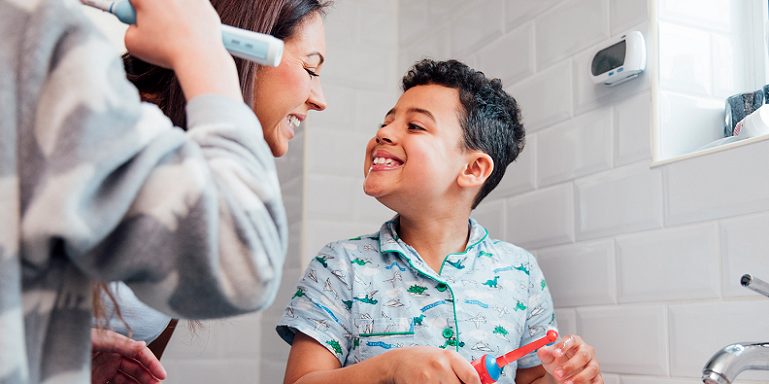Spontaneity can be good for the brain as it helps to promote creativity, problem-solving, and decision-making skills. Engaging in spontaneous activities and experiences can also help to reduce stress and improve overall cognitive function. However, it’s important to balance spontaneity with structure and planning to maintain overall well-being.
Benefits of Being Spontaneous
Spontaneity can be beneficial for the brain because it encourages flexibility, adaptability, and the ability to think outside of the box. When you engage in spontaneous activities, you’re more likely to come across new and unexpected situations, which can help to challenge your brain and promote cognitive growth. Additionally, spontaneity can help to boost mood and reduce stress, which can have a positive impact on overall cognitive function.
However, it’s important to note that too much spontaneity can be detrimental as well. A balance of structure and planning is necessary for maintaining overall well-being. A routine or a structure is important for the brain because it provides a sense of security, which can help to reduce stress levels. Additionally, a routine can help to improve time management, increase productivity, and promote overall cognitive function.
Creativity and Spontaneity
Engaging in spontaneous activities can help to stimulate the brain and promote creativity. It can also help to break up monotony and inspire new ideas.
There is a strong relationship between creativity and spontaneity. Spontaneity can help to promote creativity by providing new and unexpected experiences that can stimulate the brain and inspire new ideas. When you engage in spontaneous activities, you’re more likely to come across new and challenging situations, which can help to break up monotony and inspire new perspectives.
Creativity, in turn, can also help to promote spontaneity. When you’re in a creative mindset, you’re more likely to be open to new ideas and experiences. Additionally, the process of generating creative ideas often requires a certain level of spontaneity. For example, brainstorming sessions typically involve free-flowing ideas and a willingness to explore new possibilities.

It’s important to note that while spontaneity can help to promote creativity, it’s not the only factor that contributes to creativity. Other factors such as curiosity, imagination, and a willingness to take risks also play a role. Additionally, creativity can be cultivated through practice, training and learning.
Problem-solving and Spontaneity
Spontaneity can help to improve problem-solving skills as it encourages flexibility and adaptability. When you’re spontaneous, you’re more likely to come across new and unexpected situations, which can challenge your brain and help you to think outside of the box.
There is a strong relationship between problem-solving and spontaneity. Spontaneity can help to improve problem-solving skills by encouraging flexibility, adaptability, and the ability to think outside of the box. When you’re spontaneous, you’re more likely to come across new and unexpected situations, which can challenge your brain and help you to develop new ways of thinking. This can help you to be better prepared to solve problems when they arise.
Problem-solving, in turn, can also help to promote spontaneity. When you’re in a problem-solving mindset, you’re more likely to be open to new ideas and perspectives. Additionally, the process of solving problems often requires a certain level of spontaneity. For example, when you’re trying to solve a problem, you may need to explore multiple solutions, be open to new ideas, and think on your feet.
It’s important to note that while spontaneity can help to improve problem-solving skills, it’s not the only factor that contributes to problem-solving. Other factors such as critical thinking, logic, and a willingness to take risks also play a role. Additionally, problem-solving can be cultivated through practice, training and learning.

Decision-making and Spontaneity
Being spontaneous can help to improve decision-making skills as it encourages you to take risks and think on your feet.
There is a relationship between decision-making and spontaneity, with spontaneous behavior often being associated with more impulsive decision-making, and less with deliberate decision-making. Spontaneity can help to improve decision-making skills by encouraging risk-taking, adaptability, and the ability to think on your feet. When you’re spontaneous, you’re more likely to be open to new ideas and perspectives, and to be comfortable with ambiguity and uncertainty. This can help you to make better decisions more quickly and effectively.
At the same time, being spontaneous doesn’t mean being reckless or irresponsible. It’s important to balance spontaneity with rationality and careful consideration. Being able to weigh options, consider the potential risks and benefits, and make decisions based on evidence and logic are also important aspects of effective decision-making.
Mood and Spontaneity
Spontaneity can help to boost mood and reduce stress by providing a sense of excitement and adventure.
There is a relationship between mood and spontaneity, with spontaneous behavior often being associated with positive moods, such as happiness and excitement. Spontaneous activities and experiences can create positive emotions and boost mood, as they can be novel, fun and exciting. Engaging in spontaneous activities can help to break up monotony, provide a sense of novelty and challenge, and provide an opportunity to engage with others and the world around you, all of which can contribute to positive mood.
On the other hand, negative moods such as depression, anxiety, or stress can inhibit spontaneity and make it difficult to engage in new experiences or take risks. When people are in a negative mood, they tend to be more cautious, less likely to take risks, and less likely to engage in spontaneous activities.

Brain health and Spontaneity
Spontaneity can help to improve overall cognitive function by challenging the brain and promoting neuroplasticity.
There is a relationship between brain health and spontaneity, with spontaneous behavior being associated with better brain health and cognitive function. Spontaneous activities and experiences can stimulate the brain, promote neuroplasticity, and improve cognitive function. Engaging in spontaneous activities can help to challenge the brain, promote learning and memory, and improve overall cognitive function.
For example, spontaneous activities such as learning a new skill, trying a new hobby, or traveling to a new place can help to challenge the brain and keep it active. This can help to promote neuroplasticity, which is the brain’s ability to form new connections and adapt to new experiences. Additionally, spontaneous activities can provide new and exciting experiences, which can help to boost brain function and cognitive performance.
On the other hand, a lack of spontaneity or a monotonous routine can lead to a lack of stimulation, which can negatively impact brain health. Additionally, negative emotions such as stress or anxiety can also have negative effects on the brain’s health.
Relationships and Spontaneity
Being spontaneous with friends and loved ones can help to strengthen relationships and create new memories.
There is a relationship between relationships and spontaneity, with spontaneous behavior often being associated with stronger and more satisfying relationships. Spontaneous activities and experiences can help to strengthen relationships by promoting intimacy, trust, and connection. Engaging in spontaneous activities with your partner or friends can help to break up monotony, provide a sense of novelty and excitement, and create shared memories. Additionally, spontaneous activities can provide opportunities to learn more about your partner or friends, and to build deeper connections.
For example, spontaneous activities such as surprise vacations, impromptu outings, or trying new activities together can help to create shared experiences and memories that can strengthen relationships. Additionally, being spontaneous and open to new experiences can help to foster intimacy and trust, by showing that you’re willing to take risks and be vulnerable.
On the other hand, a lack of spontaneity in relationships can lead to feelings of boredom, monotony, and disconnection. When people are stuck in a routine, or when relationships become stale, it can be harder to maintain intimacy and connection. Additionally, negative emotions such as stress or anxiety can also have negative effects on relationships.

Life satisfaction and Spontaneity
Spontaneity can help to increase overall satisfaction with life by providing new experiences and opportunities for growth.
There is a relationship between life satisfaction and spontaneity, with spontaneous behavior often being associated with higher levels of life satisfaction. Spontaneous activities and experiences can help to increase life satisfaction by providing a sense of novelty and excitement, promoting positive emotions, and creating shared memories. Engaging in spontaneous activities can help to break up monotony, provide a sense of adventure and challenge, and improve overall well-being.
For example, spontaneous activities such as traveling to new places, trying new hobbies, or meeting new people can help to provide a sense of novelty and excitement, which can boost life satisfaction. Additionally, spontaneous activities can provide opportunities for personal growth and self-discovery, which can also contribute to overall well-being.
On the other hand, a lack of spontaneity or a monotonous routine can lead to feelings of boredom and dissatisfaction with life. When people are stuck in a routine, or when life becomes predictable and uneventful, it can be harder to maintain a sense of excitement and fulfillment. Additionally, negative emotions such as stress or anxiety can also have negative effects on overall well-being and life satisfaction.
Conclusion
In summary, spontaneity can be beneficial for the brain in terms of promoting creativity, problem-solving, and decision-making skills. However, it’s important to balance spontaneity with structure and planning to maintain overall well-being.
It’s important to note that being spontaneous doesn’t mean being reckless or irresponsible. Being spontaneous means being open to new experiences, but also being aware of your surroundings and the potential risks.

